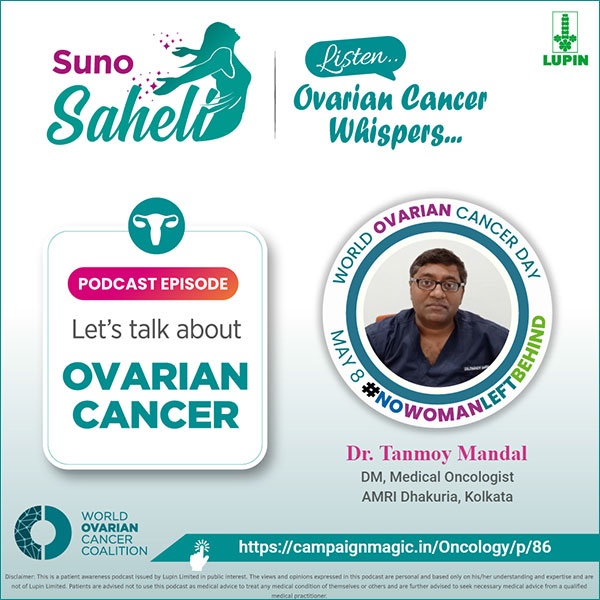
Oropharynx Cancer
What is Oropharynx cancer?
Oropharynx cancer affects the oropharynx or the middle part of the throat, which includes the tonsils, back of the tongue, soft palate, and the walls of the pharynx. It usually develops in the squamous cells that line the oropharynx, and it can spread to the nearby lymph nodes and other parts of your body, if not treated early.
What are the symptoms of oropharynx cancer?
The symptoms of oropharyngeal cancer may vary depending on the stage and location of cancer, but common signs and symptoms include the following:
1. Persistent sore throat or pain in the throat
2. Difficulty or pain when swallowing
3. Ear pain
4 . Hoarseness or change in voice
5. Lump in the neck or throat
6. Difficulty breathing
7. Bleeding from the mouth or throat
8. Persistent cough
Risk-factors of oropharynx cancer
The causes and risk factors of oropharyngeal cancer have been explained below by a cancer doctor in Kolkata.
1. Human papillomavirus or HPV infection: HPV is a sexually transmitted virus that can cause changes to the cells in the oropharynx, leading to the development of cancer. In recent years, HPV has become a leading cause of oropharyngeal cancer, especially among younger people.
2. Tobacco use: Smoking cigarettes, cigars, or pipes and using tobacco products can increase the risk of oropharyngeal cancer.
3. Alcohol consumption: Heavy drinking can increase the risk of oropharyngeal cancer, especially when combined with tobacco use.
4. Poor oral hygiene: Poor dental hygiene and gum disease can increase the risk of oropharyngeal cancer.
5. Age and gender: Oropharyngeal cancer is more common in men and in people over the age of 50.
6. Weak immune system: People with weak immune systems, such as those with HIV/AIDS, are at increased risk of developing oropharyngeal cancer.
7. Family history: Having a family history of head and neck cancers can increase the risk of developing oropharyngeal cancer.
Treatment of oropharynx cancer
Oropharyngeal cancer can be treated using a variety of methods, including surgery, radiation therapy, chemotherapy, and targeted therapy. These have been described below by the best oncologist in Kolkata.
1. Radiation therapy : It involves the use of high-energy radiation to kill cancer cells and can be used in combination with surgery and chemotherapy or alone. Radiation therapy can be administered externally, using a machine outside the body, or internally, by placing radioactive material near the cancer cells.
2. Chemotherapy: Chemotherapy uses drugs to kill cancerous cells. It can be given intravenously or orally and is often used in combination with surgery and radiation therapy.
3. Targeted therapy: Targeted therapy involves using drugs that specifically target cancer cells while leaving the healthy cells intact. This type of treatment can be used alone or with other treatments.
4. Surgery : It may involve removing a small portion of the oropharynx or the entire affected area. In some cases, reconstructive surgery may be necessary to restore the function and appearance of your mouth and throat.
Book an Appointment

Dr. Tanmoy Kumar Mandal
D.M.(Medical Oncology), M.D.(General Medicine)

